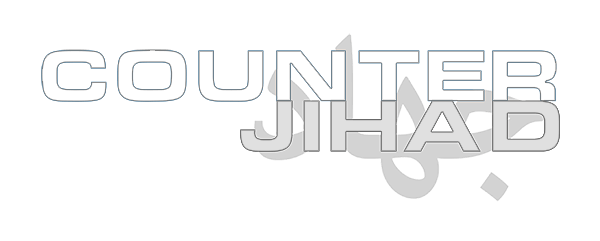
Slander, Blasphemy & Censorship
QUDOSI: #BlackEid Continues with YouTube’s Censorship Protecting Violent Islamic Ideology
YouTube has sided against Muslim reformers like me with today's actions. In doing so, it goes against a newly forged consensus between traditionalists, reformers, and security professionals.
BY Shireen Qudosi · @ShireenQudosi | July 6, 2016
Today marks the end of the holy Muslim month of fasting for Muslims, ushered with celebration around the world. However, there is little to celebrate in what Muslims are calling a #BlackEid marked by eleven acts of terrorism prompted by violent Islamic ideology. In an extraordinary move, even well-known traditionalist scholar Hamza Yusuf recently sided with Muslim reformers. Such reformers have gone on record for over the last two decades calling attention to a crisis in Islam.
It is remarkable that Muslim reformers and Muslims traditionalists, who have been historically opposed to see eye to eye, can now find some sort of common ground. This is key moving forward in a summer that expects to see even more terrorist attacks.
At every terrorist attack the world launches hashtags and one-liners offering prayers. Social media channels become mirrors for national dialogue. That’s exactly what they are: mirrors. In most cases, they mirror empty rhetoric. The real battle isn’t “Islamophobia” or making Muslim children feel safe and protected by feeding ourselves fantasies. The real work is having open and honest conversations (33:30) that launch competing ideas from within the Muslim world. Even the Department of Homeland Security’s CVE (Countering Violent Extremism) program agrees that counter-narratives by secular Muslims are key. Unfortunately, that department is run by a leftist-friendly agenda.
YouTube’s Censorship Ignores National Thought Leadership on Violent Ideology
When three incredibly diverse sets of minds can come together – Muslim reformers, Muslim traditionalists, and professionals in the security community – it tells you we’re on the right track. We all agree that the ideology needs to be tackled. There is no other way to do this other than to actually be able to talk about the ideology. That means being able to name the problem.
Yesterday, YouTube, a private company that has no understanding of the problem, decided to step away from being a mirror and instead project influence. YouTube chose to censor and pull a critical, compelling CounterJihad video created to educate the public on the violent Islamic ideology. YouTube cited the video as “hate speech.”
The video is a powerful tool that Muslim reformers like myself use to help educate the public – and that public often includes other Muslims who simply aren’t well-educated on issues to do with our own faith, including how terrorists justify their behavior through violent Islamic doctrine of jihad.
Why Tackling the Ideology is Seen as “Hate Speech”
Language has always been a key battleground in the fight against radical Islam. It has become an increasingly contested space. The newest campaign in the war on language has been to label competing points of view as bigoted and racist, to deny radicalization exists, and to conflate legitimate dialogue on Islamic extremism as “hate speech.”
While U.S. law hasn’t clearly defined “hate speech,” and prior case law sets only a rough framework of precedents, we collectively see speech as hateful if it is intended to agitate or threaten. Yet, there are dueling interpretations of what it means to speak with hate. When we think of hate speech, we immediately think of the Civil Rights era that sought to protect African Americans against hateful rhetoric that in most cases was followed by acts of violence.
Many are now equating Muslim treatment in the West under “Islamophobia” as parallel to what African Americans suffered in the 1960s. These modern day social commentators and social justice warriors suffer from a lack of scope. It’s easy to pick something from the past and apply it as an analogy to a present situation. It’s much more difficult to understand just where and how the analogy breaks. Analogies always do break, because the only way two different things could be exactly the same is if they were actually the same thing all along.
This analogy has real problems. What the West is dealing with, and what Muslim Americans are facing, is not a systematic denial of civil rights. We have our rights. We’re also not faced with racism. Islam is not a race, nor is it limited to members of one race or one ethnicity. It is practiced worldwide by many different peoples.
Because of that, what our entire world is dealing with is the violent stronghold of Islamic ideology that justifies hate, murder, and destruction. We’re dealing with a mindset of Islamic supremacy that condones both forms of jihad – civilization jihad and violent jihad.
The reaction to that is civil dialogue and frustrated opinion, both of which are being shamed as bigotry and hate speech. As with our video, we’re seeing passionate reporting being censored as hate speech, while thousands of accounts on YouTube that promote 13th century barbarism go unchecked and uncensored.
Only a simple mind, that has no ability or interest in understanding a deeper problem, would mistake dialogue for hate speech. While hate speech is seen as agitating or threatening, the fact is most people can’t handle anything but their own world view – which means that they will be easily agitated or threatened. This doesn’t mean that truthful dialogue is hateful.
Dialogue that is truthful in nature is going to agitate the unsettled and easily rattled personality. By this logic of not wanting to disturb people, not a single revolution in history – from the birth of Christianity, to the rise of Islam, to the founding of Western democracy – could ever have occurred for fear that someone would be agitated and threatened.
Silencing Dissidents
Historically, voices that pushed a society forward always stemmed from dissidents in some form or another. Collectively, whether it’s on social media or in the public sphere, the only voice being censored right now in an Orwellian age of controlled chaos is that of dissidents. It is ironic that just two days after we celebrated freedom that was wrangled from the bloody hands of an oppressive regime, we’re now seeing new forms of corporate regimes trying to oppressive our fundamental rights. These are not just American rights. This is about human rights.
YouTube’s remove of CounterJihad’s factual analysis of the threat of ISIS and radical Islam is a devastating blow at credible counter-terrorism efforts. No company or individual can legitimately say they support free speech and at the same time set up blockades against the very people doing the work necessary to counter the ideology. By choosing the censor CounterJihad’s video from YouTube, YouTube has chosen to tacitly support violent extremism. There is no other way to look at this.

Slander, Blasphemy & Censorship
CENSORED: YouTube Uses Anti-ISIS Policy to Pull CounterJihad Video. Watch it here.
A "hate speech" policy developed to counter the Islamic State's murderous propaganda is now being used to silence critics of radical Islamic terror.
MORE ABOUT Slander, Blasphemy & Censorship
Backgrounders
UN Resolution 16/18
The Organization of Islamic Cooperation and the Obama administration have joined in endorsing a heckler’s veto on freedom of speech in violation of America’s most deeply-held political principles.
Slander in Islamic Law — What You’re Not Allowed to Say or Know
In sharia, the word translated as “slander” is the Arabic word ghiba. It means to say anything about someone that they do not like, even though it is true.
BREAKING NEWS & RESEARCH

Israeli Ambassador to USA Slams SPLC for “Practicing Intolerance”
Ambassador Ron Dermer said that the Southern Poverty Law Center claims to defend tolerance for those who "look different," but works to suppress those who "think different."

EXCLUSIVE: ‘Civil Rights’ Groups Fearmongering Over Trump “Hate Crimes” Backed Hillary
Clinton donations expose political agenda behind calls for Trump to reconsider “racist” Cabinet picks

Georgia Legislator Introduces, Quickly Withdraws Islamic Veil Ban
A quick death for an attempt to reform a bad law with a defensible purpose.


